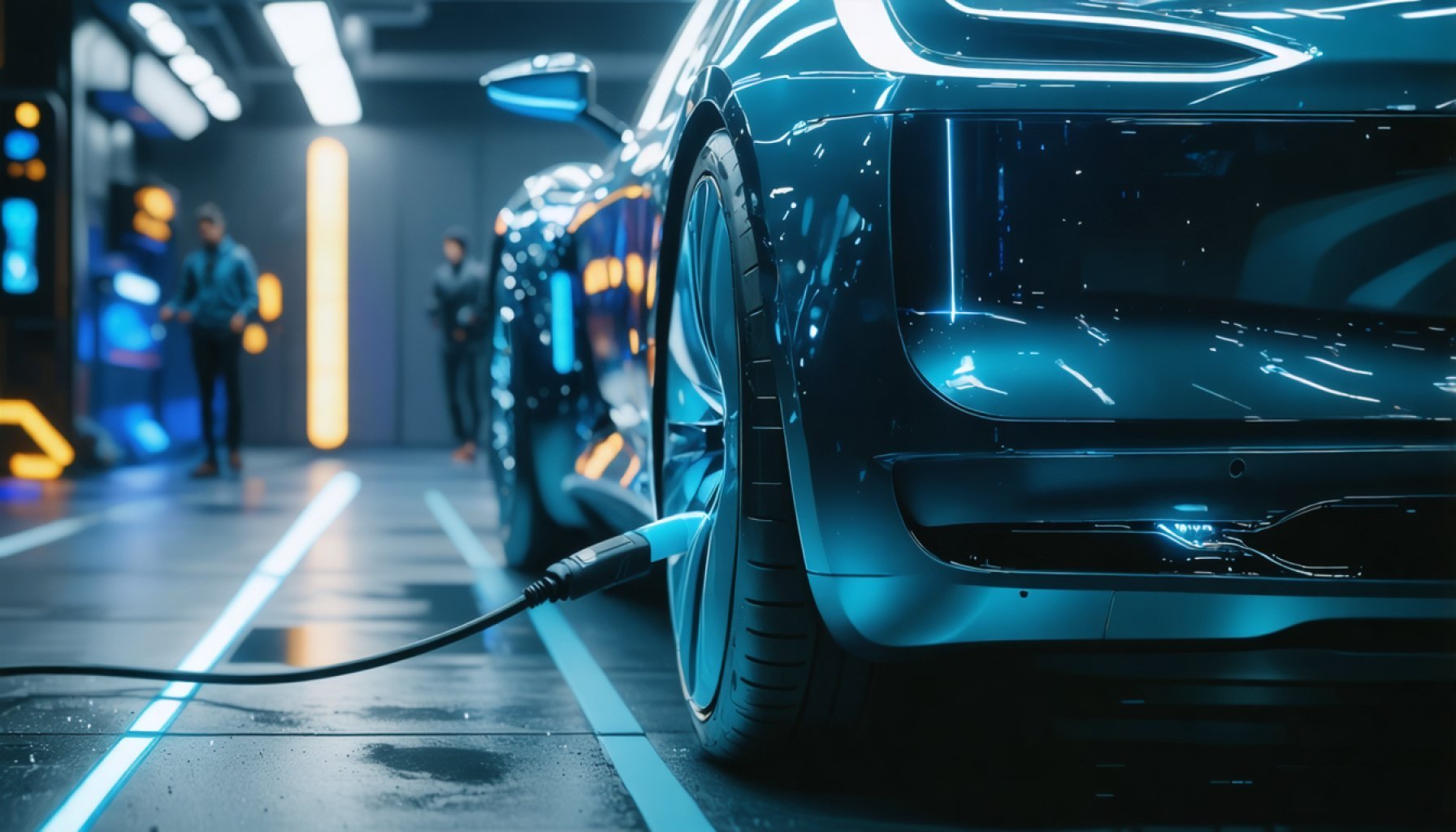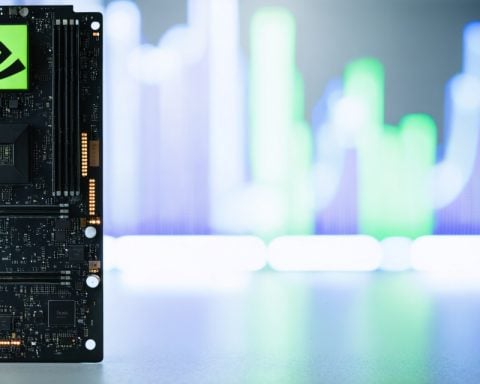- Voyah introduces a groundbreaking solid-state battery with an energy density of 300 Wh/kg, revolutionizing charging with a speed of 12 minutes to full charge.
- The battery’s design eliminates electrolytes, offering enhanced reliability in extreme climates, advancing beyond traditional lithium-ion limitations.
- Established in 2020 as Dongfeng’s premium EV brand, Voyah is recognized for its innovative models like the Free, Dream MPV, and Zhuiguang sedan.
- The previous Amber Battery set benchmarks with 212 Wh/kg energy density and a swift 800 V platform recharge capability.
- As the automotive industry evolves towards sustainability, Voyah’s battery advancements highlight fast charging and enhanced efficiency as key to future EV innovation.
- Amidst growing competition, such as BYD, Voyah’s pursuit signifies significant progress in the EV landscape, emphasizing faster, longer-lasting, and adaptive battery technology.
Beneath the gleaming lights of the Shanghai auto showcase, Voyah aims to redefine the electric vehicle landscape with its latest battery marvel. The automaker’s cutting-edge solid-state battery promises to deliver a starkly improved charging experience, while maintaining the energy punch of its predecessors at 300 Wh/kg. This innovation isn’t just a step; it’s a leap, enhancing the charging multiplier to a brisk 3 to 5 C. Imagine powering up your vehicle to full capacity in a mere 12 minutes.
While many still grapple with the limits of traditional lithium-ion batteries, Voyah propels forward with a design stripped of electrolytes, promising reliability across extreme climates. With the automotive industry fast racing towards a more sustainable future, such advancements not only boost efficiency but also bolster the argument for choosing electric over fossil fuel.
Since laying its foundation as Dongfeng’s premium EV unit in 2020, Voyah has swiftly carved a name with its line of forward-thinking models: from the innovative Free and family-centric Dream MPV, to the sleek Zhuiguang sedan. Last year, the Amber Battery, with its 800 V platform, set new benchmarks with an energy density of 212 Wh/kg and an astonishingly quick recharge capability.
As the clamor for green technology amplifies, Voyah’s relentless pursuit of battery excellence sketches a bright horizon. With contenders like BYD aiming for similar feats by 2027, the takeaway is clear: the next wave of EV innovation hinges on batteries that charge faster, last longer, and adapt effortlessly to our ever-changing world. This isn’t just technology; it’s progress in motion.
Shocking Advances in EV Batteries: Revolutionizing Your Drive with Voyah’s Solid-State Marvel
In-Depth Look at Voyah’s Solid-State Battery Innovation
How-To Steps & Life Hacks
Adopting electric vehicles (EVs) equipped with solid-state batteries like Voyah’s can seem daunting. Here are the steps to make the transition smoother:
1. Research Compatibility: Ensure the EV meets your daily commuting needs.
2. Assess Charging Infrastructure: Examine available charging stations in your area or install a home charging unit compatible with high-demand charging rates (3-5 C).
3. Utilize Off-Peak Charging: Optimize electricity costs by charging during off-peak hours.
Real-World Use Cases
Solid-state batteries offer unique benefits for various applications:
– Fleet Operators: Companies managing fleets can benefit from reduced downtimes due to faster charging times.
– Eco-Conscious Drivers: Individuals committed to minimizing their carbon footprint will appreciate the environmental benefits.
– Extreme Climate Areas: These batteries maintain performance in harsh conditions, making them ideal for regions with temperature extremes.
Market Forecasts & Industry Trends
According to research firm Markets and Markets, the solid-state battery market is expected to grow from $62 million in 2021 to $483 million in 2027, showcasing their growing significance in the EV sector. As automakers like Voyah and BYD innovate, expect rapid developments in this field.
Reviews & Comparisons
While Voyah’s solid-state battery offers impressive performance, it’s also worth comparing with others:
– Voyah vs. Tesla: Tesla continues to enhance lithium-ion tech emphasizing longevity and energy density. However, Voyah’s charge speed is a game-changer.
– Voyah vs. BYD: Both aim for fast charging and efficiency, though BYD’s focus is on their Blade Battery tech for future models.
Controversies & Limitations
Despite their promise, solid-state batteries face challenges:
– Production Costs: Currently higher than lithium-ion, but expected to decrease.
– Scalability: Manufacturing at scale remains a hurdle.
Features, Specs & Pricing
The standout specs include an energy density of 300 Wh/kg, 3-5 C charging multiplier, and electrolyte-free design. Pricing remains competitive as Voyah aims to stay accessible in the premium EV market.
Security & Sustainability
Solid-state batteries offer enhanced safety by minimizing risk of combustion and are more environmentally sustainable due to fewer toxic materials.
Insights & Predictions
As more automobiles integrate solid-state batteries, expect improved vehicle ranges and faster adoption of EVs on a global scale. Experts foresee a major shift by mid-decade.
Pros & Cons Overview
Pros:
– Rapid charging (12 minutes to full)
– High thermal stability
– Greater energy efficiency
Cons:
– Higher initial price point
– Limited current availability
Actionable Recommendations
– Embrace Home Charging: Install a home EV charger to capitalize on the fast-charging technology.
– Stay Informed: Keep up with developments from automakers like Voyah as the tech evolves.
Voyah’s solid-state battery technology positions them at the forefront of the electric vehicle revolution, embodying not only an advance in technology but a significant stride towards sustainable mobility. For more information on electric vehicles and cutting-edge automotive technology, visit Dongfeng.














